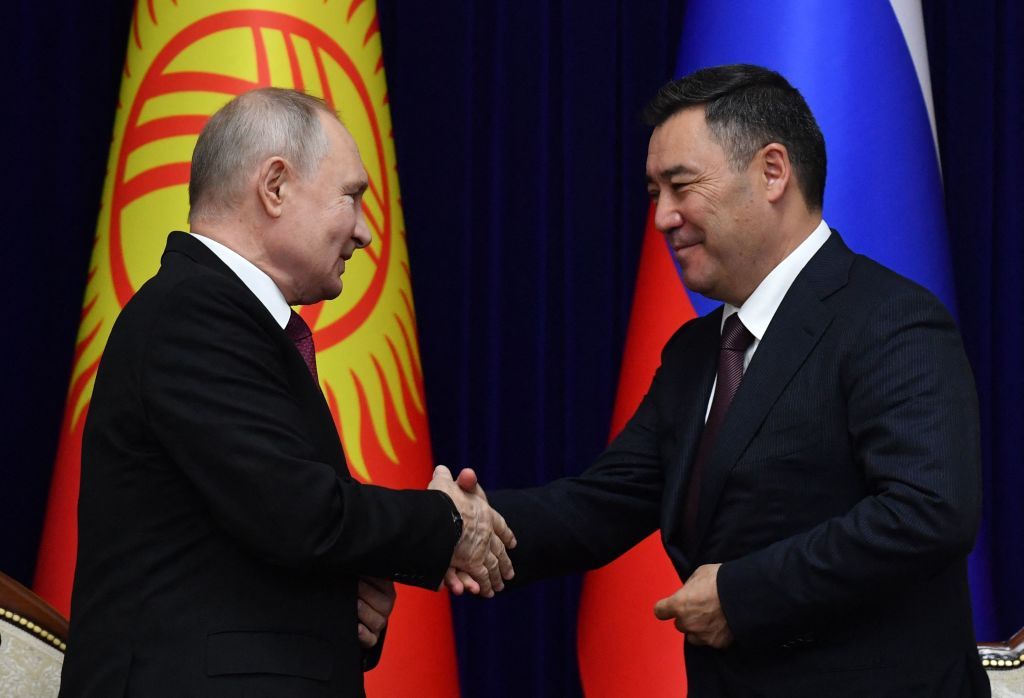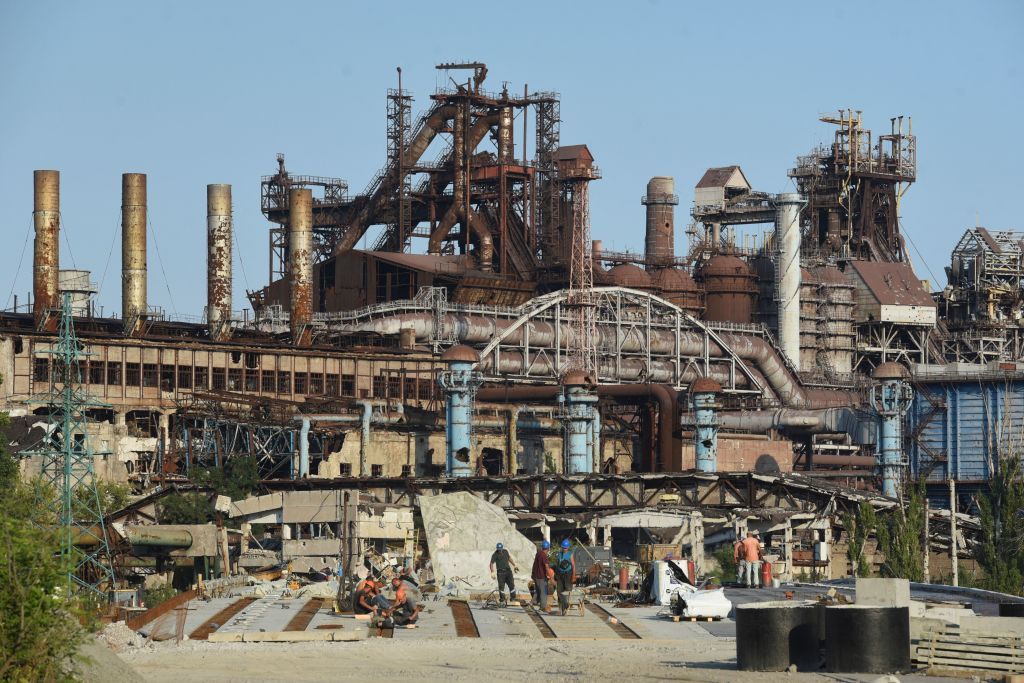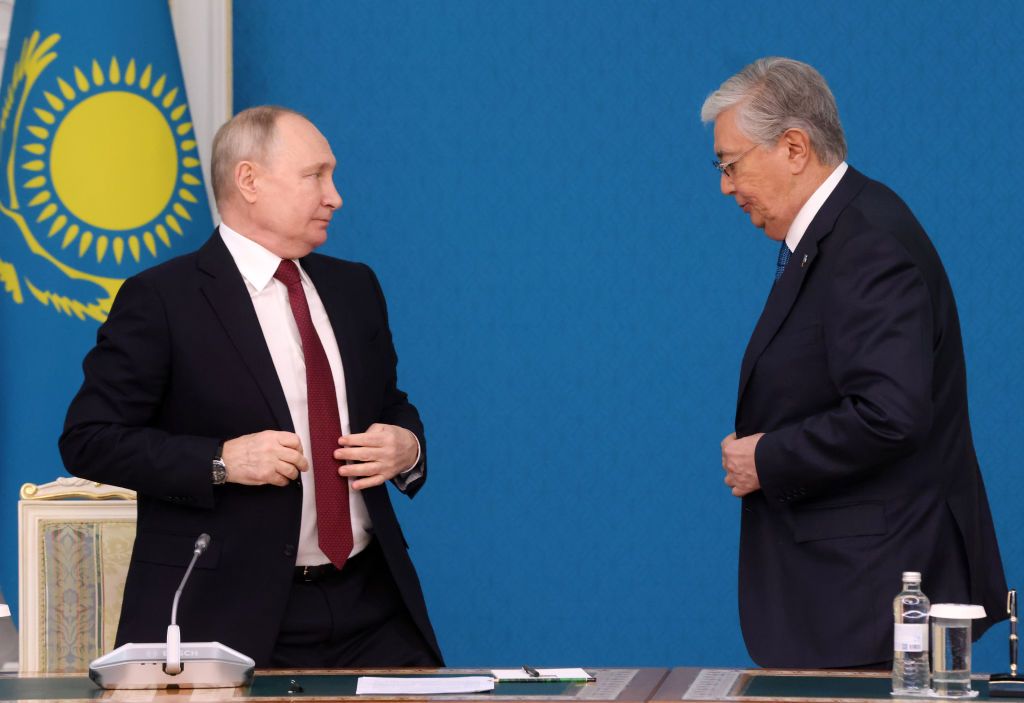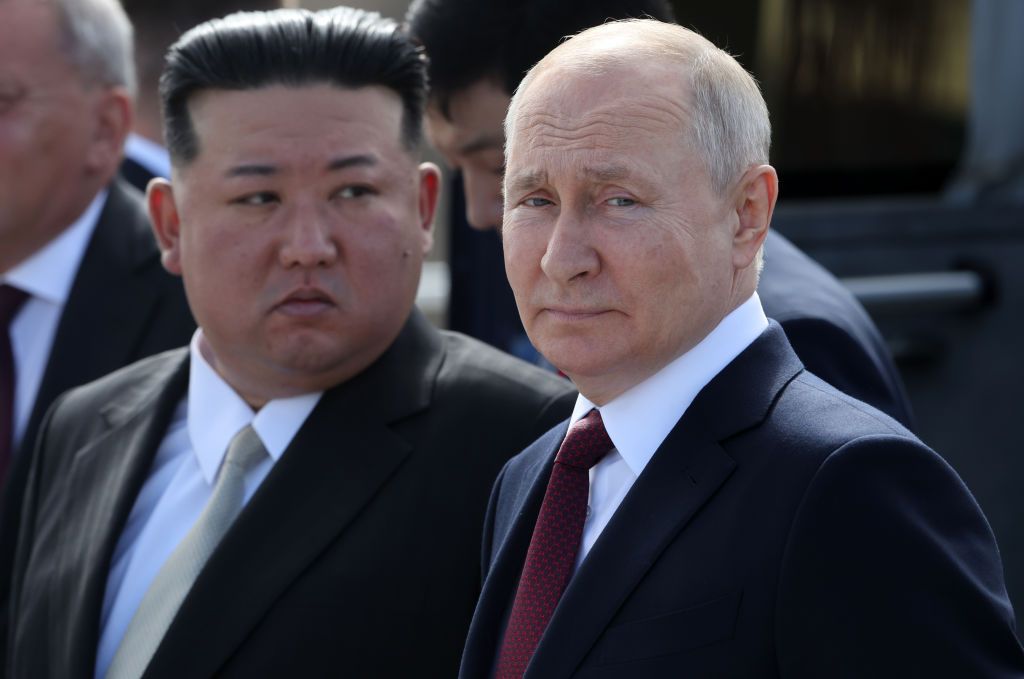Why ideology still matters for an expanding BRICS

For Argentina's newly-elected president, Javier Milei, ideology is the beating heart of politics.
The economist, TV show personality, and self-professed anarcho-capitalist built his campaign on passionate support for a hands-off government and free market principles.
His forthright approach also encompasses foreign policy.
In the last weeks of 2023, Milei decided to refuse an invitation for Argentina to join BRICS, a loose coalition of nations initially forged by Brazil, Russia, India, and China.
Formed in 2009, BRICS, without an S in the name at the time of formation, was created to act as a forum for rising economies.
It grew to include South Africa in 2010, while a host of other countries — Egypt, Ethiopia, Iran, and the United Arab Emirates — joined in 2024.
Most have seen Milei's decision to shun BRICS as a matter of principle. The outsider president has been vocal in his desire to align with the United States and Ukraine while deriding governments in China and Brazil as "communists."
"Milei sees foreign policy in a very black and white sense," says Bruno Binetti, a non-resident fellow at the Inter-American Dialogue, a think tank in Washington DC dedicated to Western Hemisphere affairs.
"I don't think there was a strategy or a calculation as to the pros and cons of being a BRICS member. I think they just acted out of ideology."
But the truth is that Milei is not alone in seeing BRICS as an entity tied tightly with principles. Many of its members — including Russia — take the same view.
BRICS has long positioned itself as a bastion of forthcoming economic might. The organization's five pre-expansion members make up 23 percent of global GDP and 18% of global trade.
These numbers obscure a different reality: the BRICS has failed to live up to its economic promise.
While China's and India's economies have continued to expand, other members have fallen behind. IMF data shows that between 2012 and 2022, Russia's economy grew by just 12 percent, down from 60 percent between 2002-2011.
Brazil and South Africa show similar trends.

The grouping has also failed to materialize as a key power bloc on the world stage.
Despite surging by 56% over the past five years, trade between BRICS members remains relatively low and is dominated by China.
The sum of trade exports and trade imports between Beijing and Brazil reached $157.5 billion in 2022, but trade between South Africa and Brazil only made $2.7 billion. These numbers are also relative to members' trade elsewhere. Trade between China and Germany reached $320 billion in 2022.
In two decades, BRICS has created its own bank and pushed to create currency reserves away from the dollar, euro, or yen.
But these milestones have also fallen short of expectations.
BRICS' multilateral lender, the New Development Bank, has approved loans of $33 billion since its founding in 2015. But that figure lags far behind its global counterparts.
The World Bank approved loans of $104 billion in 2022 alone.
With no group-wide trade deals or united economic policy on the horizon, little is set to change as BRICS expands.
It is still an association based on an idea: the vision of a world economy that is less centered on Western Europe and North America. For countries such as Russia, exploiting that ideology has become another tool within their foreign policy.
A 'multipolar world'
For Moscow, the ideological value of BRICS is self-evident.
Russia has repeatedly praised the grouping as a cornerstone of one of its most dearly held talking points: the idea of a "multipolar world."
For Moscow, this would be a world less dependent on the institutions and the systems it has found itself frozen out of due to its invasion of Ukraine, allowing it to break international law without fear of economic repercussions.

In an article for Ubuntu magazine before the 2023 BRICS summit in South Africa, the Russian Foreign Minister summed up the Kremlin line: "New centers of economic growth and of global decision-making on important political issues in Eurasia, Asia-Pacific, the Middle East, Africa, and Latin America are guided primarily by their own interests and assign paramount importance to national sovereignty," he wrote.
The assumption that Moscow would become one of these global centers remained implied but unspoken.
That does not mean that Russia would not stand to gain from a more trade-focused BRICS. As Western-led sanctions continue to hamper the Russian economy, Moscow has become increasingly dependent on partners such as China and India to buy up the oil and gas exports.
"Russia needs BRICS to be a trade block. It needs more people to reject the U.S. dollar; it needs more countries that are willing to buy what Russia can produce. BRICS could provide that opportunity," says Dr. Heather Ashby, a senior program officer for the Center for Russia and Europe at the U.S. Institute of Peace.
But with this scenario seems unlikely to appear in the near future, Russia has been able to utilize the relationships it has gained at BRICS to build not trade deals but influence — both with BRICS members and elsewhere.
Offering expertise and advice in areas such as defense and tech has helped Moscow solidify ties with authoritarian-leaning regimes.
The ideological narrative that Russia takes from BRICS has helped to underpin these overtures and has become an important part of the Kremlin propaganda and image-making.
Moscow regularly espouses its desire to see a more equitable division of global power, particularly when officials visit the Global South. Cloaked in the language of decolonialism, it leverages legitimate concerns and grievances to obscure Russia's own imperial campaign in Ukraine.
These trips do not always provide huge economic or trade benefits for Russia. Yet they give Moscow a chance to present itself as a knowledgeable, generous, and self-sufficient world power — an image it hopes to project to both domestic and global audiences.
"Senior officials being welcomed to Moscow, or Lavrov being seen abroad, is a propaganda victory," says Dr. Ashby.
A pragmatic approach
This path will only take Moscow so far. BRICS' ideological underpinning is useful to Russia, it is far from a fixed dogma.
While many of the countries within the grouping may wish to see less Western hegemony, all will have differing ideas as to what that may mean.
Russia may be able to use BRICS' reputation to build its image as a champion of the Global South, but it cannot count on the group's members as allies.
Rather than dividing countries into separate camps, for most of the world, groupings such as BRICS will continue to be tools, says Juliana Rubio, an associate director with the Americas Program at the Center for Strategic and International Studies (CSIS). She compared many countries in Latin America as taking a stance similar to those who practiced "non-alignment" during the Cold War.

"For Latin America, I think it's never going to be a question of either or. I don't think that having close ties with Beijing or with more authoritarian countries necessarily means that the country is turning away from democracy or turning away from the U.S. Their relationship is not seen as something that they have to pick a side," she says.
In the 21st century, where economies are built on complex webs of multinational trade, this more pragmatic approach is ultimately unavoidable — even for those who put ideology first, like Javier Milei.
His claims that he would not work with "communist" Beijing were quickly backtracked as Buenos Aires balked at the reality of offending one of the country's largest trading partners.
"Even if Milei wants to break ties with Beijing, he can't. Argentina has soaring debt, and a big part of that is owned by China. So those relationships will continue," says Rubio.
"Even as the administration says it's not going to join BRICS, that's not going to change that they're heavily dependent on Beijing. The act in itself does not symbolize a switch."















